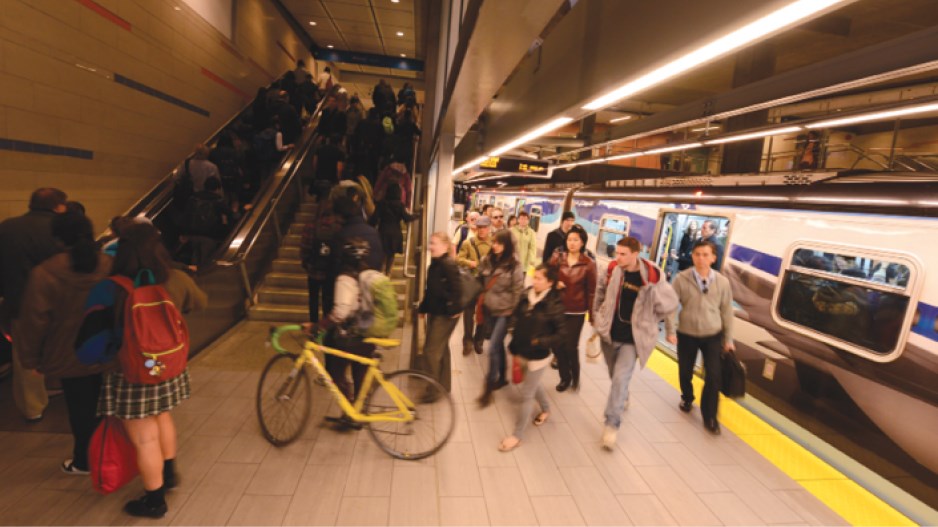Could British Columbians soon be paying 7.5% PST on many of their purchases in the near future?
The B.C. government has confirmed that if Metro Vancouver voters were to approve a proposed 0.5% transit tax in the upcoming mail-in referendum, the added levy would be combined with the provincial sales tax.
In a letter sent to the regional Mayors’ Council on January 31, B.C. Transportation Minister Todd Stone clarified businesses would not have to separately add the proposed metro congestion improvement tax (MCIT) to receipts or invoices.
Instead, the 0.5% MCIT would be attached to the 7% PST at the point of sale throughout Metro Vancouver businesses.
“In taking these steps, we would enable this tax to be both administered and remitted by businesses in conjunction with the existing PST, and not requiring it to be separately identified on any receipts or invoices, would address a number of the concerns expressed by the business community,” Stone wrote in a letter sent to Mayors’ Council chairman Gregor Robertson.
Robertson, who is also mayor of the City of Vancouver, said in a statement the council is pleased with the announcement.
“This will address concerns that the retail sector and others had, and eliminate any further confusion about exemptions and administration of the tax,” he said.
“Application of the PST to the tax base has always remained a provincial responsibility and this harmonization provides seamless administration. We want to ensure that simplicity continues so we will not be requesting any further exemptions.”
By attaching the MCIT to the PST, goods such as groceries, children’s clothing, prescription medication and transportation expenses would not be subject to an additional 0.5% tax at the cash register.
The announcement does allay some of the concerns that retailers had about the change, said Greg Wilson, director of government relations for B.C. for the Retail Council of Canada.
"One of our concerns is that the basket of goods and services be identical, so you don't have to figure out which tax to charge. That appears to have been addressed," Wilson said. "The separate line appears to have been addressed, i.e. that it would be a separate line on the receipt."
However, Wilson said there were still many questions that the Finance and Transportation ministries have yet to answer. One of the biggest unknowns is how the tax will work with online sales.
Wilson said his organization will refrain from endorsing either the yes or no sides, but he said it would be difficult for retailers to know how to vote until they are clear on how the change will affect them.
Eric Woodward, president of the Fort Langley Business Improvement Association, said in a January 28 statement — released prior to Stone’s announcement — he had heard it would cost some small business owners as much as $10,000 to upgrade their point of sales systems.
“That’s a big hit, compounded by having more paperwork to fill out, more rules to wade through, and customers with less money in their pockets.”
That figure is on the very high end of what it will cost most retailers to change their point of sales systems, Wilson said, but he said there will be some cost for every retailer — for many a relatively straightforward software upgrade — to make the change.
Mark von Schellwitz of Restaurants Canada said the change is positive because it removes "red tape," but restaurant owners are still concerned about the additional tax on liquor. (Food is exempt from the current 7% PST, but liquor is taxed at 10%; if the regional sales tax is approved, the PST rate on liquor would rise to 10.5%)
"We have some members that are opposed to it, because after all it does take away some disposable income, which our industry feeds off of," von Shellwitz said. "But other people say it doesn't directly impact us … we do have to pay for this transportation infrastructure somehow."
Vancouver Board of Trade CEO Ian Black said a February 1 statement it’s clear the government is trying to minimize the impact of the MCIT on small businesses.
“The fact that we are now talking about a simple 0.5% addition to the PST means that businesses will be able to address this quickly and efficiently which is good for them and for their customers,” Black said.
B.C. Chamber of Commerce CEO John Winter said in a statement his members were concerned about additional administrative costs but the announcement from Victoria “removes this concern entirely.”
Both the Vancouver Board of Trade and the B.C. Chamber of Commerce are members of the Better Transit and Transportation Coalition, which is campaigning for a yes vote.
Ballots for the referendum will be sent out through mid-March to the end of May.
With files from Jen St. Denis




